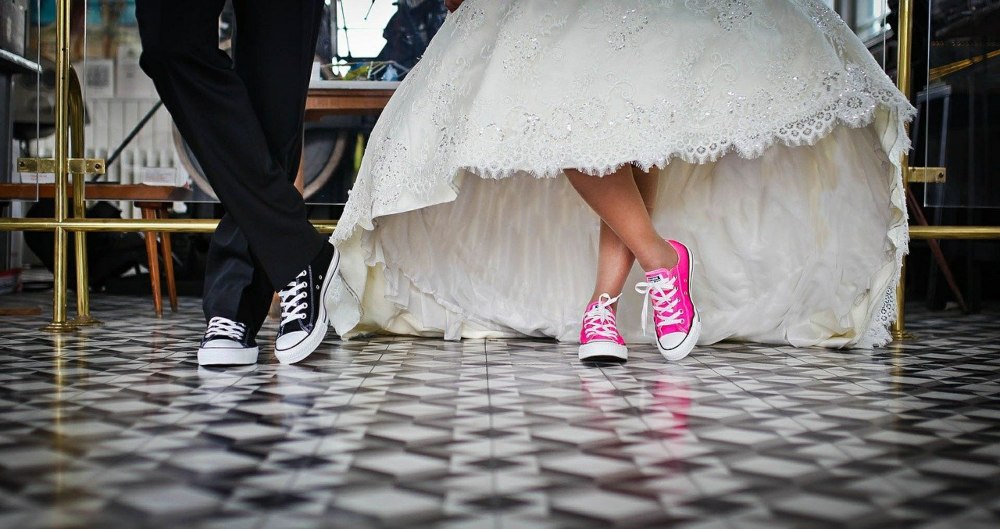
Perhaps you recognize the headline as one of the most-read recent articles from The New York Times. Too good not to steal (don’t worry, titles cannot be copyrighted)! Recently, its author the philosopher, Alain de Botton, was interviewed by Krista Tippett for her program “On Being.”
It was actually a rebroadcast, reprised for the recent Valentine’s Day. The program is titled, “The True Hard Work of Love and Relationships.” I thought it was awesome, and encourage you to listen to the entire thing. For today, I want to excerpt from the interview, adding a few comments of my own along the way. As a minister I have some experience in counseling couples about to take the plunge.
Love Is a Skill. AdB writes: “Love is something we have to learn and we can make progress with, and that it’s not just an enthusiasm, it’s a skill. And it requires forbearance, generosity, imagination, and a million things besides. The course of true love is rocky and bumpy at the best of times, and the more generous we can be towards that flawed humanity, the better chance we’ll have of doing the true hard work of love.”
When performing weddings I would often say that love is more than a feeling, it is a commitment. But I prefer AdB’s description of it as a “skill.” While he too distances love from feelings alone — “it’s not just an enthusiasm” — by describing love as a skill he makes it something we can learn, and something we can get better at. I find that both wise and encouraging.
Be Generous. More from AdB: “So we have this ideal of what love is and then these very, very unhelpful narratives of love. And they’re everywhere. They’re in movies and songs — and we mustn’t blame songs and movies too much.
“But if you say to people, ‘Look, love is a painful, poignant, touching attempt by two flawed individuals to try and meet each other’s needs in situations of gross uncertainty and ignorance about who they are and who the other person is, but we’re going to do our best,’ that’s a much more generous starting point. So the acceptance of ourselves as flawed creatures seems to me what love really is. Love is at its most necessary when we are weak, when we feel incomplete, and we must show love to one another at those points. So we’ve got these two contrasting stories, and we get them muddled.”
AdB seems to have a doctrine of sin, referring often to us all as “flawed.” The romantic story of love has no room for that as the idea is that we find the “perfect” person for us, fall in love and live happily ever after. Notice that story ends with the “falling in love” part, which is really just the beginning.
Changing Our Lover. We start here with Krista Tippett’s question, followed by AdB’s response.
Tippett: “Someone recently said to me — and I’d be curious about how you would respond to this. It was a wise Jewish mother who had said to them, “Men marry women with the intention that they — with the idea that they will the stay the same. Women marry men with the idea that they will change.” Which is obviously a huge generalization, but gosh, it made a lot of sense to me, even in terms of my own life and in terms of what I see around me.”
de Botton: “I would argue that both genders want to change one another, and they both have an idea of who the lover “should” be. And I think a useful exercise that sometimes psychologists level at feuding couples is they say things like, ‘If you could accept that your partner would never change, how would you feel about that?’
“Sometimes pessimism, a certain degree of pessimism can be a friend of love. Once we accept that actually it’s really very hard for people to be another way, we’re sometimes readier. We don’t need people to be perfect, is the good news. We just need people to be able to explain their imperfections to us in good time, before they’ve hurt us too much with them, and with a certain degree of humility. That’s already an enormous step.”
Like Tippett, I think the Jewish mother was onto something. And I appreciate AdB’s emphasis that it really is hard for people “to be another way.” Very wise. Not impossible (with God all things are possible!) but not easy either.
To ride myself out of this column, here’s a song that seems to fit, one of our favorites. “True Love Travels on a Gravel Road,” by Nick Lowe (who like de Botton is British). Give it a listen.
Discover more from Post Alley
Subscribe to get the latest posts sent to your email.

Alain de Botton is a refreshingly original writer and thinker. I’m guessing that the interview you refer to is drawn largely from his invaluable “Essays in Love”. Some of his critics accuse him of stating the obvious. That may be one of the highest compliments that could be paid a philosopher. In your reading, you might enjoy his “Religion for Atheists”. Or maybe his ideas are a little too obvious.
In Boutain’s “The Art of Travel” he writes eloquently about traveling down the road not usually taken: the boredom of travel that is carefully avoided by romantic travel flacks. Perhaps there is some similarity to marriage.